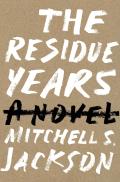
 In this special series, we asked writers we admire to share a book they're giving to their friends and family this holiday season. Check back daily to see the books your favorite authors are gifting.
In this special series, we asked writers we admire to share a book they're giving to their friends and family this holiday season. Check back daily to see the books your favorite authors are gifting.÷ ÷ ÷
A book that I find myself returning to over and over again is Edward P. Jones's short story collection All Aunt Hagar's Children.
Edward P. Jones is one of my favorite writers, and what's great about this book is the way he reveals the humanity of the people in his stories. His characters are people I feel like I've known for years, and I always have a sense (imagine the oldest and most sagacious person in your family and you might come close to one of his omniscient narrators) of Jones's earned wisdom.
My favorite stories in the collection are "A Rich Man," about an elderly womanizer who receives his comeuppance, and "Old Boys, Old Girls," about an ex-con's transition into the world. I like these stories in particular because, on the surface, the characters are not empathy-worthy sorts, but by the end of the stories, Jones's understanding of the elements of their predicament and his ability to portray their moral complexity inspires me into genuine empathy for them.
 This book is also special to me because Jones sets all of his stories, whether in present day or the deep past, in the Washington, D.C., area from which he hails. It's almost impossible to avoid feeling the magnitude of care he has for his home and also how well he knows the terrain and the people.
This book is also special to me because Jones sets all of his stories, whether in present day or the deep past, in the Washington, D.C., area from which he hails. It's almost impossible to avoid feeling the magnitude of care he has for his home and also how well he knows the terrain and the people.
If you're feeling extra ambitious, you'll also read the collection with its predecessor, Lost in the City, a story collection for which Jones won the PEN/Hemingway Award. Though they were published 14 years apart (he published the Pulitzer-winning novel The Known World in between), all of the stories in All Aunt Hagar's Children and Lost in the City are linked.
I have read some of the stories in the collection close to a dozen times, have gifted them to family and close friends, and each person fell in love with the book as I had. It's the kind of literature you can read again and again because it's vast and rewarding, and because there is wisdom in its pages about the fight to be a human being.